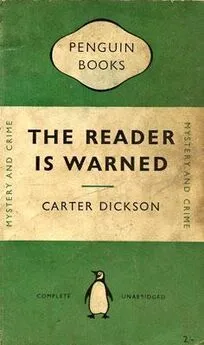Алексей Минченков - Glimpses of Britain. Reader
- Название:Glimpses of Britain. Reader
- Автор:
- Жанр:
- Издательство:Array Литагент «Антология»
- Год:2006
- Город:Санкт-Петербург
- ISBN:5-94962-113-1
- Рейтинг:
- Избранное:Добавить в избранное
-
Отзывы:
-
Ваша оценка:
Алексей Минченков - Glimpses of Britain. Reader краткое содержание
Glimpses of Britain. Reader - читать онлайн бесплатно ознакомительный отрывок
Интервал:
Закладка:
Thirty years later, a French visitor to the East End reported that “all the houses, except one or two, are evidently inhabited by harlots”. According to Scotland Yard’s director of CID, it was impossible for a respectable woman to walk through the West End in mid-afternoon because of the number of prostitutes openly soliciting.
Droves of girls were seen huddling along Regent Street, Piccadilly and Haymarket, urinating and defecating in public. For men of such tastes, children were easily procured: the age of consent was just 12.
Domestic servants joined the trade at night, desperate to supplement their meagre wages. Shop assistants did the same, with the encouragement of West End dress-shop managers who hired out clothes to them by way of advertising.
The phenomenon gave rise to endless scandalised discussion. At first, conventional opinion held that the prostitutes were corrupting the nation’s morals, whereas the men who patronised them were merely satisfying their natural inclinations while leaving respectable women unsullied. Gradually, however, the climate changed. Under the influence of evangelical reformers, the public began to see prostitutes as victims exploited by profligate males.
Rescuing “fallen women” became a national pastime. Reformers would seek out girls in the streets, give them improving tracts and plead with them to change their ways. The Liberal leader William Gladstone frequently took prostitutes home, where his wife gave them food and shelter.
But compassion was mixed with a morbid fear of venereal disease, which was especially rife among the Armed Forces. One in three cases of sickness in the Army was due to VD.
MPs responded by passing the Contagious Diseases Acts, which allowed police to arrest suspected prostitutes within a ten-mile radius of garrison towns, hold them for several days and order them to undergo an internal examination with a speculum.
The results were deeply unpleasant. Women, not always prostitutes, could have their most intimate privacy invaded, often brutally, on the say-so of a single policeman.
For many women, it crystallised the feeling that they and their kind were being victimised when the real fault lay with amoral men looking for sex. When doctors tried to extend the legislation nationwide in 1869, there was uproar.
Under the leadership of a charismatic clergyman’s wife, Josephine Butler, women across the country banded together to campaign for the law’s repeal. It was 16 years before they succeeded, but the crusade had far-reaching effects.
Butler and her colleagues saw their job as the reform of promiscuous men as much as the rescue of fallen women. In their eyes, it was men who funded prostitutes, and men who passed the laws degrading them.
The only solution was for women to enter public life and sort things out. “Male vice” would only end if women had the vote and the chance to purify politics.
It proved a popular rallying cry. Women’s emancipation became a crusade to save humanity from men’s corrupting influence. The battle for the vote became inextricably tangled up with a campaign for sexual purity.
The year 1886 saw the final repeal of the Contagious Diseases Act. It was a watershed in the women’s movement. Feminists redoubled their demands for the vote and became ever more outspoken in their attacks on men. To some extent, this was a natural reaction to the horrors they had uncovered. In part, however, it arose from a sense of moral superiority that was rapidly tipping over into puritanical self-righteousness.
The most militant now argued that marriage was as exploitative as prostitution – just another way of purchasing women. Some saw all sexual relations with men as abhorrent. Women like the veteran feminist Elizabeth Wolstenholme Elmy believed that male sexuality was an expression of the bestial side of human nature, and that to indulge it threatened the very existence of society.
Indeed, she considered that nearly all “diseases of woman” – including, bizarrely, menstruation – were due “to one form or other of masculine excess or abuse”.
This man-hating agenda encouraged a move towards sexual separatism, with many campaigners turning their backs on marriage and remaining defiantly single. At the time, they were simply called spinsters; in many cases, we would now consider them to have been lesbians.
In an atmosphere of growing fundamentalism, the hardliners were in the mood for open revolt. All that was needed was a suitably reckless and fanatical leader to show the way.
This is where Emmeline Pankhurst came in. She and her equally formidable daughter, Christabel, would take the sex war to a new level.
Raised in Manchester but educated in Paris, Emmeline was strikingly beautiful, yet her ambition and ruthlessness were evident from the start.
“She should have been a lad,” said her father. He meant it as a compliment, but she heard him “with rebellion in her heart”.
Ironically, she inherited the cause of women’s liberation from her husband, Richard Pankhurst, a failed politician who in 1870 had drafted the first women’s suffrage bill to be put before Parliament. After his death, she set up her own movement called the Women’s Social and Political Union. Such was her personal magnetism that disciples flocked to her like bees to honey. In time, hero-worshipping crowds would throw jewels and watches at her feet.
Her daughter Christabel was even more charismatic and became the pin-up of the suffragette cause. Slender, graceful, and with “the flawless colouring of a briar rose”, she was physically enchanting to men and women alike.
But like her mother, Christabel was utterly ruthless. “In spite of her charm and feminine attraction,” wrote one admirer, “there was in her soul a core as hard and brilliant as steel, and I sometimes thought as pitiless.”
It was Christabel who established the suffragettes’ strategy of deliberately courting martyrdom to win the propaganda war. In 1905, after disrupting a political meeting, she and a colleague spat at a policeman and refused to pay the fine, ensuring they were sent to jail.
She and Emmeline then encouraged their supporters to follow suit, and milked every drop of publicity when they were punished.
Some of the protests were little more than stunts. Burning rags were stuffed into letterboxes, keyholes blocked with lead, chairs flung into the Serpentine, flower beds damaged, and envelopes containing red pepper and snuff sent to every Cabinet minister.
But as we have already seen, there was also real violence – with repeated attempts to assault the Prime Minister, Herbert Asquith. Amid police reports of suffragettes practising with revolvers, there were even fears he might be assassinated. On one occasion, his car was forced to slow down to avoid a woman lying in the road. Other women promptly jumped out and belaboured him over the head with dog whips, his head protected only by his top hat.
Many of the suffragettes jailed for such attacks won further celebrity by going on hunger strike. The Government introduced force-feeding, inserting tubes through their noses and down their throats while warders held them down.
It was exactly what the Pankhursts wanted. They intended their violence to provoke an extreme reaction and produce the impression of innocent women being persecuted by an oppressive state.
Harsh though the word may seem, such manipulative cynicism is the hallmark of terrorism. Worse still, the suffragette leaders washed their hands of any responsibility for the followers they lured into violence.
It was an act of monstrous cowardice that made victims of the very women they were purporting to lead to liberation. But such tactics were typical of the Pankhursts, who ran their movement in autocratic style and cast out any colleagues who dared to voice dissent.
Both women adored the limelight and the opportunity it gave them to strike melodramatic poses. They shared a pathological self-importance and gloried in their chosen role as martyrs.
Christabel, however, spoilt the effect by running away to Paris in 1912 to avoid further risk of being jailed. There she spent her time sightseeing and visiting fashionable shops, while encouraging those she had left behind to launch a campaign of arson.
In truth, these militant tactics were counter-productive and merely made the Government more resistant to reform. The Pankhursts’ response was to crank up the idea of the war against male lust. Stone-throwing, arson and physical attacks, argued Emmeline, were all a means of cleansing society – the only way to eradicate the “Social Evil” of prostitution.
“As a result of the Social Evil,” she thundered, “the nation is poisoned morally, mentally and physically. Women are only just finding this out.” “As their knowledge grows, they will look upon militancy as a surgical operation – a violence fraught with mercy and healing.”
Puritanism of the rich
by George Monbiot
The Guardian, November 9, 2004
“If Bush wins,” the US writer Barbara Probst Solomon claimed just before the election, “fascism is possible in the United States.” Blind faith in a leader, she said, a conservative working class and the use of fear as a political weapon provide the necessary preconditions.
She’s wrong. So is Richard Sennett, who described Bush’s security state as “soft fascism” in the Guardian last month. So is the endless traffic on the internet.
In The Anatomy of Fascism, Robert Paxton persuasively describes it as “… a form of political behaviour marked by obsessive preoccupation with community decline, humiliation or victimhood and by compensatory cults of unity, energy and purity”. It is hard to read Republican politics in these terms. Fascism recruited the elite, but it did not come from the elite. It relied on hysterical popular excitement: something which no one could accuse George Bush of provoking.
But this is not to say that the Bush project is unprecedented. It is, in fact, a repetition of quite another ideology. If we don’t understand it, we have no hope of confronting it.
Puritanism is perhaps the least understood of any political movement in European history. In popular mythology it is reduced to a joyless cult of self-denial, obsessed by stripping churches and banning entertainment: a perception which removes it as far as possible from the conspicuous consumption of Republican America. But Puritanism was the product of an economic transformation.
In England in the first half of the 17th century, the remnants of the feudal state performed a role analogous to that of social democracy in the second half of the 20th. It was run, of course, in the interests of the monarchy and clergy. But it also regulated the economic exploitation of the lower orders. As RH Tawney observed in Religion and the Rise of Capitalism (1926), Charles I sought to nationalise industries, control foreign exchange and prosecute lords who evicted peasants from the land, employers who refused to pay the full wage, and magistrates who failed to give relief to the poor.
But this model was no longer viable. Over the preceding 150 years, “the rise of commercial companies, no longer local, but international” led in Europe to “a concentration of financial power on a scale unknown before” and “the subjection of the collegiate industrial organisation of the Middle Ages to a new money-power”. The economy was “swept forward by an immense expansion of commerce and finance, rather than of industry”. The kings and princes of Europe had become “puppets dancing on wires” held by the financiers.
In England the dissolution of the monasteries had catalysed a massive seizure of wealth by a new commercial class. They began by grabbing (“enclosing”) the land and shaking out its inhabitants. This generated a mania for land speculation, which in turn led to the creation of sophisticated financial markets, experimenting in futures, arbitrage and almost all the vices we now associate with the Age of Enron.
Читать дальшеИнтервал:
Закладка:










